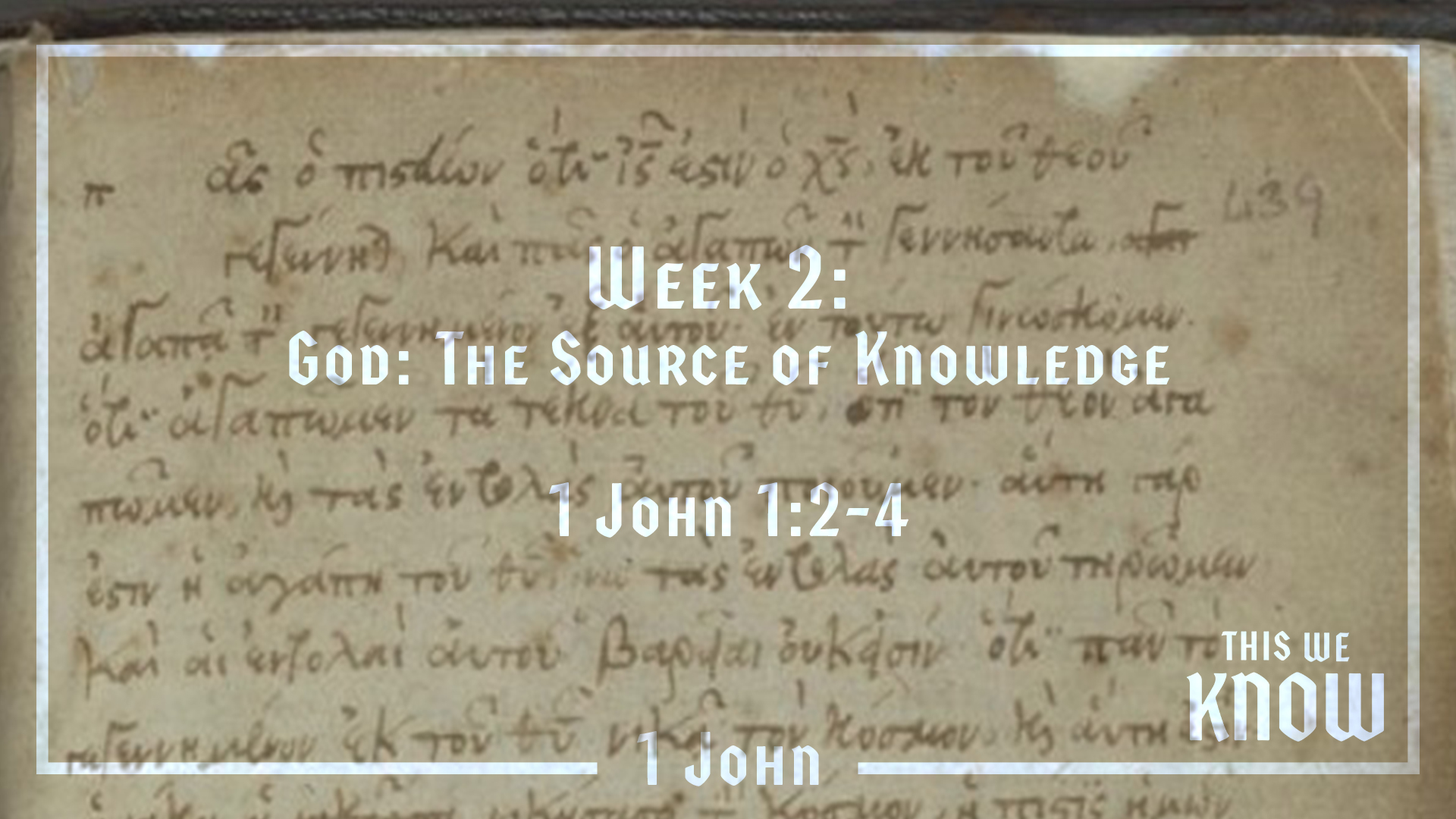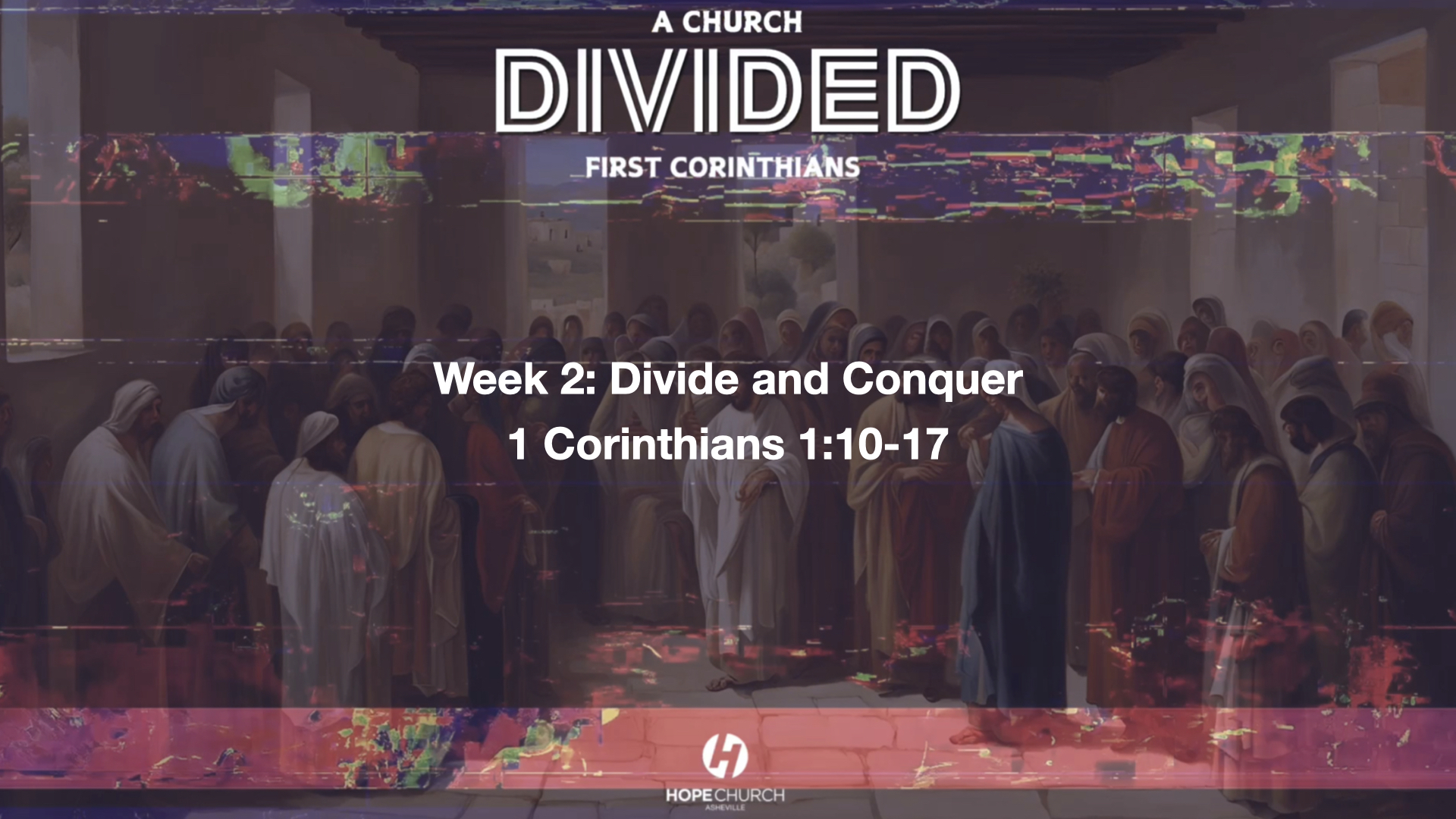Episode Transcript
WEEK 3: Unexpected Peace
Let’s open our Bibles together to Isaiah 9.
The name Benedict Arnold is forever associated with treason. What most people don’t know is that Benedict Arnold was an accomplished general in the Continental Army during the American Revolutionary War. Frustrated by the way he saw the war progressing, and offended by what he perceived as a lack of recognition for his military sacrifices, Arnold switched allegiance from the Colonies of America to Britain, and offered to surrender West Point to the British for 20,000 pounds. His plans were intercepted, he was labeled a traitor, and his name became a byword for betrayal and treason.
In American history, it could be argued, no one was more treasonous than Benedict Arnold. In annals of redemptive history, however, Arnold’s treason pales in comparison to the cosmic treason of Adam and Eve.
When Adam and Eve sinned in the garden of Eden, they not only rebelled against God; they also betrayed his goodness and denounced his rule. It was the ultimate act of treason. Adam and Eve turned God into the enemy as they surrendered themselves and the world to sin. By doing so, they created an enmity between them and God, and passed that enmity to all who would come after them. The apostle Paul tells us that in Adam we all sinned (Romans 5:12), and therefore we were all made enemies of God (Romans 5:10).
Consequently, in order for anyone to be in right relationship with God, the enmity must be removed. The relationship must be reconciled. What Adam and Eve lost in the garden must be mended and restored. When the Bible speaks of reconciliation, this is the primary meaning (2 Corinthians 5:17). Salvation is God ending the enmity between himself and us through the life and death of Jesus Christ (Romans 5:10). In a word, reconciliation is the gospel.
This is the third week of our Christmas Series, Unexpected - The Story that Shocked the World. To get a clearer description of what Christmas is all about, we did not start at the Little Town of Bethlehem, we did not focus our eyes on a Star of Wonder, we did not crane our necks toward a certain Silent Night… We started 750 years before Christ was born. Isaiah was prophesying the impending overthrow and exile of Israel, which happened in 722 BC. But, Isaiah was not just a prophet of doom. Throughout Isaiah’s writings are some of the most glorious and astounding promises of redemption and deliverance. Our text is one of those passages.
Isaiah 9:2-7
2 The people who walked in darkness have seen a great light;
those who dwelt in a land of deep darkness, on them has light shone.
3 You have multiplied the nation; you have increased its joy;
they rejoice before you as with joy at the harvest, as they are glad when they divide the spoil.
4 For the yoke of his burden, and the staff for his shoulder, the rod of his oppressor, you have broken as on the day of Midian.
5 For every boot of the tramping warrior in battle tumult and every garment rolled in blood will be burned as fuel for the fire.
6 For to us a child is born, to us a son is given; and the government shall be upon his shoulder, and his name shall be called
Wonderful Counselor, Mighty God, Everlasting Father, Prince of Peace.
7 Of the increase of his government and of peace there will be no end,
on the throne of David and over his kingdom, to establish it and to uphold it with justice and with righteousness from this time forth and forevermore.
The zeal of the Lord of hosts will do this.
Theologians regularly point to four fundamental human relationships emphasized in Scripture: relationships with God, self, others, and the rest of creation (see Deut. 6:4-6; Gen. 1:26-28). The relationship with God is central, as it is the foundation for the other three. When man and woman were created in God’s image, they experienced a perfect relationship of love and acceptance because they were at peace with God. They knew exactly who they were and they were at peace within themselves. They were at peace with each other and they lived in a perfect society of peace. Creation was their responsibility and they ruled over it, together, as king and queen of the most peaceful and ordered social structure history has ever known.
Enter the serpent. The enemy of God. He seduced God’s creatures with lies and promises he could not deliver. They believed and betrayed their Creator. They sold Him for less than a bowl of pottage or 30 pieces of silver. They betrayed God for a pandora’s box full of misery, pain, and death.
Their betrayal fractured their relationship with God. They were separated from God. This separation marred the image of God and suddenly they did not know who they were. Their identity was confused and immediately they began blaming each other. Ever since humankind has been at war with each other and our creation mandate has been a miserable failure because of the curse that was pronounced on Creation at the Fall.
All 4 of the Fundamental Human Relationships were broken and we know this to be true because as we look at the world we inhabit, the signs of death are everywhere.
6 For to us a child is born, to us a son is given; and the government shall be upon his shoulder, and his name shall be called
Wonderful Counselor, Mighty God, Everlasting Father, Prince of Peace.
7 Of the increase of his government and of peace there will be no end,
on the throne of David and over his kingdom, to establish it and to uphold it with justice and with righteousness from this time forth and forevermore.
The zeal of the Lord of hosts will do this.
The English word, Peace, comes from the Hebrew word Shalom. In the beginning, all of creation experienced a state of peace. The word actually means, “Everything is as it was intended to be and should be”. Sin destroyed our peace and Creation was thrown into chaos. However, Genesis 3:15 promises the coming of a Warrior Deliverer. One that would crush the head of the serpent and restore humanity to their proper place. Isaiah picks up on the thread we see throughout all of the Old Testament of the coming Messiah. He calls this Messiah the Prince of Peace. The one who would restore Shalom to God’s Creation and God’s People. He did this in an unexpected way.
There is not a better word that could be used to communicate the sum and substance of the gospel than reconciliation. Reconciliation is that aspect of the gospel where the separation and enmity between God and humanity caused by sin are ended, and peace and renewed relationship are forever established, through the person and work of Jesus Christ. The message and ministry of the gospel is the message and ministry of reconciliation.
Reconciliation is what the Prince of Peace brings. He authored and signed our peace treaty with God in His own blood.
1. The Problem of Reconciliation
The word itself implies a broken relationship.
We hide from God
We distort the truth of God
We are enemies of God
All Creation is under a curse
We can’t do anything to rescue ourselves.
2. The Promise of Reconciliation
What is the promise of Christmas? What Christmas is meant to bring is laid out in the biblical texts given us in our advent liturgies. Mostly these are prophetic visions of what things will look like after God sends a messiah into the world. Taken mainly from the Jewish prophets, particularly from Isaiah, these visions promise that the birth of the messiah will turn reality delightfully upside down. What Christmas promises is universal peace, the lion and lamb lying down together; reconciliation, enemies forgiving each other; justice, valleys filled in and deep places raised up; food for all, every sheep carefully tended to; restfulness from our longing, everyone cradled peacefully in loving arms; and healing from all wound, God himself drying every tear on earth. The Christmas crib is an icon of that peace.
Isaiah 7:14 Therefore the Lord himself will give you a sign. Behold, the virgin shall conceive and bear a son, and shall call his name Immanuel.
3. The Prince of Reconciliation
18 Now the birth of Jesus Christ took place in this way. When his mother Mary had been betrothed to Joseph, before they came together she was found to be with child from the Holy Spirit. 19 And her husband Joseph, being a just man and unwilling to put her to shame, resolved to divorce her quietly. 20 But as he considered these things, behold, an angel of the Lord appeared to him in a dream, saying, “Joseph, son of David, do not fear to take Mary as your wife, for that which is conceived in her is from the Holy Spirit. 21 She will bear a son, and you shall call his name Jesus, for he will save his people from their sins.” 22 All this took place to fulfill what the Lord had spoken by the prophet:“Behold, the virgin shall conceive and bear a son, and they shall call his name Immanuel” (which means, God with us).
Only the Prince of Peace, God Himself, could deliver the promise of Christmas. How did He do this?
Colossians 1:15 He is the image of the invisible God, the firstborn of all creation. 16 For by him all things were created, in heaven and on earth, visible and invisible, whether thrones or dominions or rulers or authorities—all things were created through him and for him. 17 And he is before all things, and in him all things hold together. 18 And he is the head of the body, the church. He is the beginning, the firstborn from the dead, that in everything he might be preeminent. 19 For in him all the fullness of God was pleased to dwell, 20 and through him to reconcile to himself all things, whether on earth or in heaven, making peace by the blood of his cross. 21 And you, who once were alienated and hostile in mind, doing evil deeds, 22 he has now reconciled in his body of flesh by his death, in order to present you holy and blameless and above reproach before him, 23 if indeed you continue in the faith, stable and steadfast, not shifting from the hope of the gospel that you heard, which has been proclaimed in all creation under heaven, and of which I, Paul, became a minister.
2 Corinthians 5:17 Therefore, if anyone is in Christ, he is a new creation. The old has passed away; behold, the new has come. 18 All this is from God, who through Christ reconciled us to himself and gave us the ministry of reconciliation; 19 that is, in Christ God was reconciling the world to himself, not counting their trespasses against them, and entrusting to us the message of reconciliation. 20 Therefore, we are ambassadors for Christ, God making his appeal through us. We implore you on behalf of Christ, be reconciled to God. 21 For our sake he made him to be sin who knew no sin, so that in him we might become the righteousness of God.
Jesus invites us back into His Shalom, His restored creation, His righteous kingdom. The enemy attacked His Shalom, but He has defeated the enemy. He has brought reconciliation between us and God. When our relationship with God is restored, we are at peace with God. We are loved and accepted by God. The love of God fills us and the Spirit of God fills us with His peace. Then and only then can we experience healing, so that we can be at peace within ourselves. When we realize who we are and why we are here we can begin to fulfill the greatest commandments to love God and love others. As we experience peace within the community of the redeemed, we can begin to fulfill our role in creation. All four of the Fundamental Human Relationships are restored in Christ.
In March of 1863, 18-year-old Charles Appleton Longfellow left his family’s house on Brattle Street in Cambridge, Massachusetts—a colonial mansion that had served as General Washington’s headquarters from 1775 to 1776.
He boarded a train bound for Washington, D.C., traveling over 400 miles down the eastern seaboard in order to join President Lincoln’s Union army to fight in the Civil War. His father was Henry Wadsworth Longfellow, the celebrated literary critic and poet.
On the first day of that December, Henry Wadsworth Longfellow was dining alone at his home when a telegram arrived with the news that his son had been severely wounded—inaccurately stating that he had been shot in the face—four days earlier. Charley had been shot through the left shoulder, with the bullet exiting under his right shoulder blade. It had traveled across his back and nicked his spine. He avoided being paralyzed by less than an inch.
Charley’s father and younger brother, Ernest, immediately set out for Washington, D.C., arriving on December 3. Charley arrived by train on December 5. Henry Wadsworth Longfellow was alarmed when informed by the army surgeon that his son’s wound “was very serious” and that “paralysis might ensue.” Three surgeons gave a more favorable report that evening, suggesting a recovery that would require him to be “long in healing,” at least six months.
On Friday, December 25, 1863, Longfellow—as a 57-year-old widowed father of six children, the oldest of which had been nearly paralyzed as his country fought a war against itself—wrote a poem seeking to capture the dynamic and dissonance in his own heart and the world he observes around him that Christmas Day.
I heard the bells on Christmas Day
Their old, familiar carols play,
and wild and sweet
The words repeat
Of peace on earth, good-will to men!
And thought how, as the day had come
The belfries of all Christendom
Had rolled along
The unbroken song
Of peace on earth, good-will to men!
Till ringing, singing on its way
The world revolved from night to day
A voice, a chime,
A chant sublime
Of peace on earth, good-will to men!
Then from each black, accursed mouth
The cannon thundered in the South
And with the sound
The carols drowned
Of peace on earth, good-will to men!
It was as if an earthquake rent
The hearth-stones of a continent
And made forlorn
The households born
Of peace on earth, good-will to men!
And in despair I bowed my head
“There is no peace on earth,” I said
“For hate is strong,
And mocks the song
Of peace on earth, good-will to men!”
Then pealed the bells more loud and deep:
“God is not dead, nor doth He sleep;
The Wrong shall fail,The Right prevail
With peace on earth, good-will to men.”
One day the Prince of Peace is returning to restore perfect order to His creation. All wrongs will be made right. “The wrong will fail, the right prevail, with peace on earth good will to men.”


